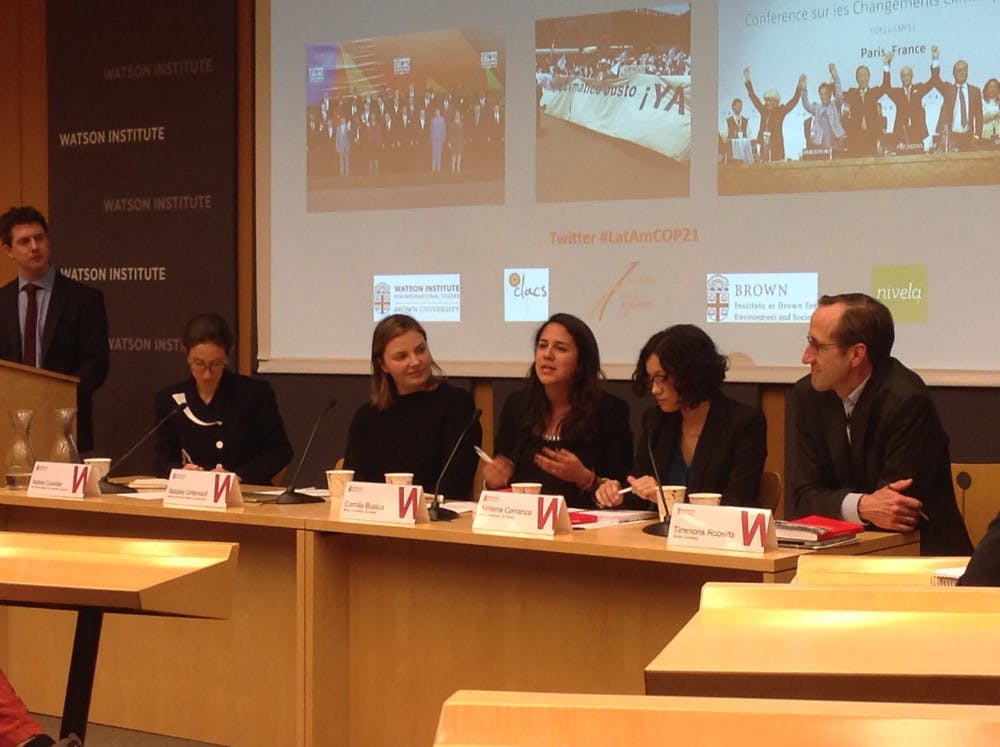J. Timmons Roberts, professor of environmental studies and sociology, and Guy Edwards, research fellow at the Institute at Brown for Environment and Society and co-director of the Climate and Development Lab, presented their recently published book, “A Fragmented Continent: Latin America and the Global Politics of Climate Change,” to a panel of experts at the Watson Institute for International and Public Affairs Thursday.
The book fills a void in academic research regarding Latin America’s role in climate change, said Richard Snyder, director of Latin American and Caribbean studies at the Watson Institute and professor of political science.
The mainstream narrative regarding climate change typically focuses on the United States’ and China’s roles in the climate debate, Roberts said.
“I’m utterly frustrated with the focus on the ‘important’ players,” said Camila Bustos ’16, lead researcher at Nivela, a research organization dedicated to innovative approaches to development-based research. Latin America is often portrayed as a “passive player” or recipient of aid, but countries in the region actually serve an active role in reform, she said.
The panelists discussed the significance of the Paris Climate Conference, which took place in December, as a prime example of various Latin American countries stepping into policy-making positions. Latin America “played a leading role” at the Paris Climate Conference, said Isabel Cavelier, minister counselor at the Permanent Missions of Colombia to the United Nations. Though the full effects of the agreement have yet to be realized, “it’s the first time a developing country (Brazil) took an economy-wide commitment” to reduce emissions, she added.
“The most important signal from Paris is decarbonizing,” said Natalie Unterstell, a Louis Bacon environmental leadership fellow at the Harvard Kennedy School of Government. Countries in Latin America and beyond are looking to diversify their economies and reduce their use of environmentally detrimental substances, she said.
Latin American countries adopted climate change reforms during a time of economic prosperity, but the recent economic downturn might complicate the implementation of future reforms, said Ximena Carranza Risco ’17, a Latin American researcher at Nivela. It is important to think of the human consequences of climate change instead of just the economic or environmental consequences, she added.
Bustos expressed similar concerns, stating, “climate change is still seen as an environmental issue” as opposed to a social problem. Bustos explained that the Paris Climate Conference symbolizes an opportunity for citizens to hold their governments accountable for the international agreements they commit themselves to. Climate change reform is not restricted to government policies, and researchers should investigate the role of non-state actors in climate change efforts in the region, he said.





